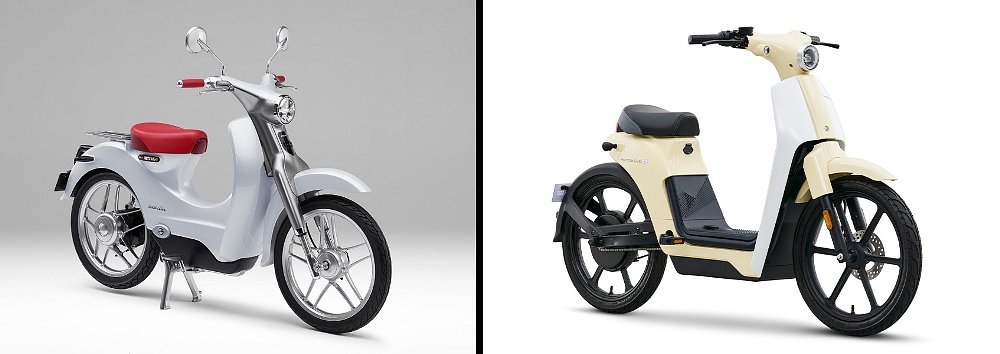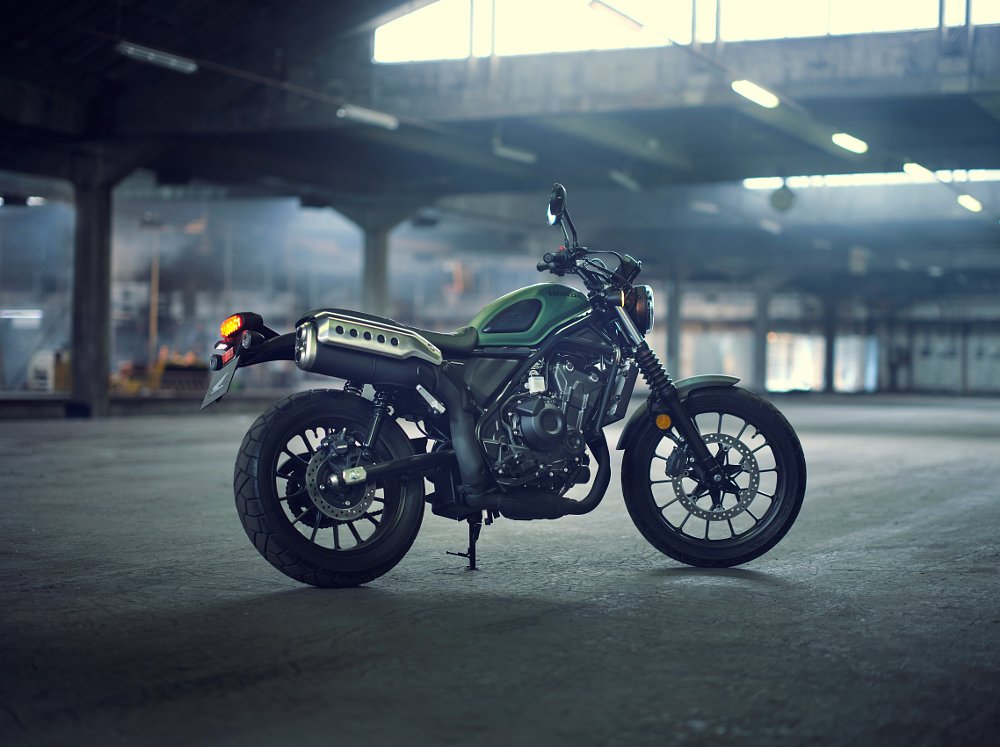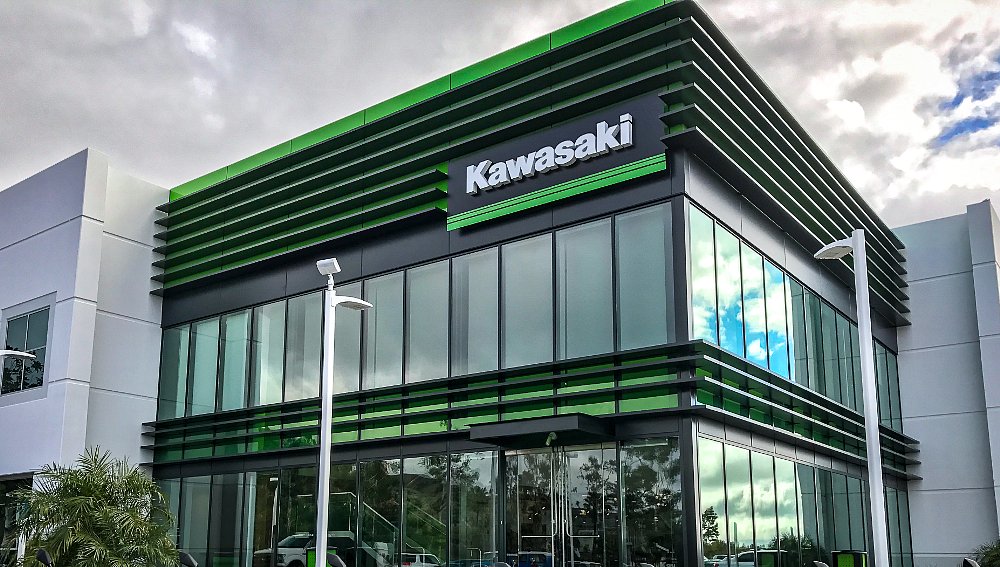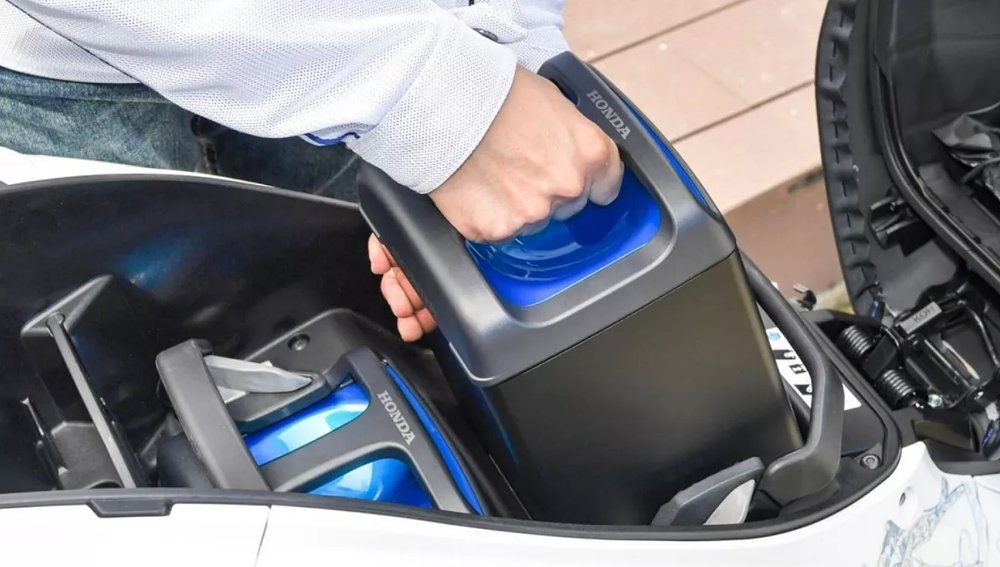The major Japanese motorcycle manufacturers have generally been slow to commit to the electric motorcycle market, falling behind volume manufacturers in China and other countries. Even steeped-in-tradition companies such as Harley-Davidson and BMW are ahead of the Japanese brands in bringing electric models to market. But in recent announcements, two of the companies from Japan say once again that they're getting serious.
As part of its "Growth Strategy for Fiscal Year 2030" released last week, Suzuki promised new electric vehicles and motors, including cars, outboard motors for boats, and an "electro senior vehicle" for elderly people who no longer drive. In motorcycles, which is what we're really about here at Common Tread, Suzuki announced a two-prong strategy to achieve a goal of 25% of its motorcycles sold in 2030 being electric.
In terms of small and mid-sized motorcycles used for daily transportation — think most of the rest of the world motorcycle market — Suzuki plans to have an electric motorcycle ready by fiscal year 2024 and launch eight models by 2030. Then the document adds, "For large motorcycles for leisure purposes, we are considering adopting carbon neutral fuels."
So what does that mean we are likely to see in the U.S. market? Suzuki's strategy document doesn't provide any further motorcycle-specific details, but in the car section it says it will develop products using "carbon neutral internal combustion engine vehicles that use CNG, biogas, and ethanol mixed fuels." Suzuki already sells cars powered by alternative fuels in markets such as India, so we could see similar engines developed for use in larger motorcycles for markets like the United States, in addition to battery electric motorcycles.
A shift in resources toward "sustainability, carbon neutrality, and alternative fuel technologies" was one of the reasons Suzuki gave for ending its participation in the very expensive MotoGP racing series. The discussion of electric vehicles is part of a broader strategy. "Suzuki aims to achieve carbon neutrality in Japan and Europe by 2050 and in India by 2070," said the statement.

Meanwhile, at Honda...
Honda showed a concept of an electric Cub as far back as 2009 and again in 2015. (In 2016, that led me to wonder how long we'd have to wait and now, in 2023, we're still waiting.)
Honda hasn't moved quickly, but the company is once again claiming it's serious about doing something. Last week, it announced a reorganization that included the creation of a new Electrification Business Development Operations unit. "This operation will consolidate the business strategy and BEV product development functions of automobile business and electrification-related strategy and development functions of motorcycle and power products businesses to further strengthen and accelerate Honda’s electrification business," the statement said.
Honda said last year it would have small electric motorcycles or scooters available in Asia and Europe in 2024 and would launch three larger electric models in Japan, Europe, and the United States in 2024 or 2025. This year, Honda is introducing three new "electric mopeds" in China: the Dax e: and Zoomer e: shown at top, and the Cub e: above. These models have pedals the rider can use to propel the moped but based on the design it looks like the pedals are just there so the vehicles fall under bicycle regulations instead of motorcycle rules, and I expect these two-wheelers will mostly be used under electric power.
By 2030, Honda projects that 15% of its global motorcycle sales will be electric models. Also, like Suzuki, Honda has a goal of achieving overall carbon neutrality; in Honda's case, by 2050.
These updates from Suzuki and Honda follow news from Kawasaki, which showed a battery-only electric motorcycle and a hybrid at EICMA and said they would be in production in 2024. Yamaha, meanwhile, has already moved quickly into the electric bicycle space, which globally still dwarfs the electric motorcycle segment.
The cautious approach by Japanese manufacturers has given the rest of the world a head start in electric vehicles, but these companies clearly have the engineering talent to make a big incursion into the market if they get serious about it. Which they keep promising to do.












